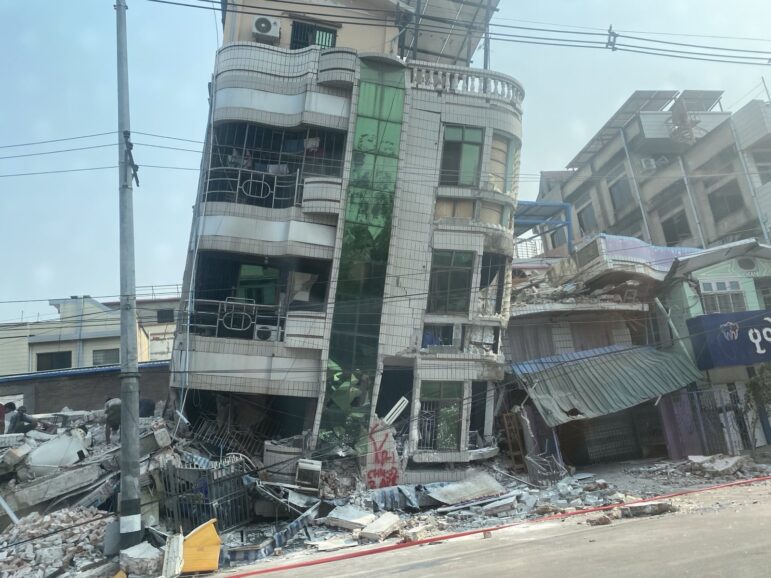From Devastation to Recovery: One Man’s Journey for Peace in Myanmar
My name is Min. In Myanmar, my ethnic group is among the most marginalized. Our state's first university only opened in 2018, and after COVID-19 closures and the 2021 coup, it remained closed. On all fronts, we’ve been left behind.
I joined NP as a staff member in 2015. At the time, I didn't even know such work existed. In a country where Positive Peace and Negative Peace were common buzzwords, I had no idea what Unarmed Civilian Protection truly meant. I accepted the job because NP worked directly with communities, and I admired their commitment to the Primacy of Local Actors.
When NP launched its first civilian protection programs in Myanmar, I was excited. By 2017, NP had trained over 800 civilians across the country in protection work. I traveled extensively, engaging with people of all ethnicities, religions, and cultures.
Then came 2021. Everything changed.
After the coup, travel became dangerous for men. When I visited three townships in 2022, I was the first outsider they'd seen since COVID. Weighing just 96 pounds, I jokingly told them that even if I stepped on a landmine, it probably wouldn’t detonate. Humor is a big part of how I continue this work. I’m just an ordinary person, doing what I can.
After over four years of conflict after the coup, at least 20 villages in my community have been destroyed. Around 10,000 people have been impacted, and families have been forced to move repeatedly.
And then the earthquake happened.
During that earthquake response, I recovered 20 dead bodies. While caring for others, I forgot to care for myself or maybe I simply didn't know how. The smell of death clung to me, bringing fear. I couldn't stand any strong scent afterward. For two weeks I couldn’t eat, and I couldn’t sleep.
I then took part in a psychological first aid training through NP. This is a new part of NP’s work, bringing in the psychological parts of safety. I can’t keep myself safe, or support others in safety, if I am not psychologically well. This training not only taught me how to rest properly, but also gave me the gift of proper recovery. When I returned, I began implementing psychological first aid training for 45 dedicated workers.
No matter our ethnicity or religion, one thing unites us all: the longing for home. We all want to be with our loved ones. There’s no greater happiness than being in one's own home. Like I said, I’m just an ordinary person. And I will keep doing what I can to make sure everyone can live in their homes, peacefully.
***
To find out how you can support this work, check out our Emergency Appeal for Myanmar.

